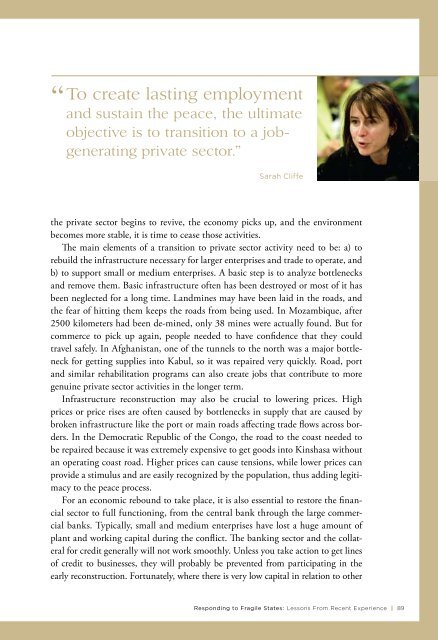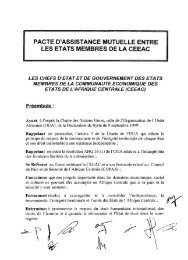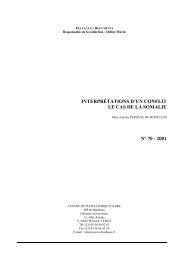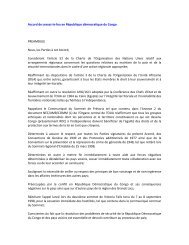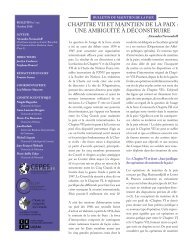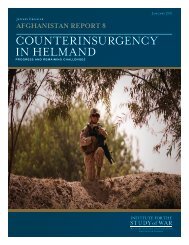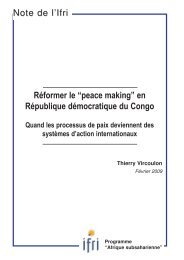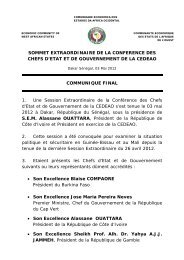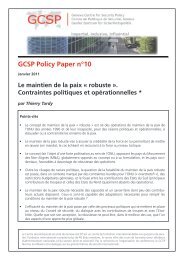engaging fragile states - Woodrow Wilson International Center for ...
engaging fragile states - Woodrow Wilson International Center for ...
engaging fragile states - Woodrow Wilson International Center for ...
You also want an ePaper? Increase the reach of your titles
YUMPU automatically turns print PDFs into web optimized ePapers that Google loves.
“<br />
To create lasting employment<br />
and sustain the peace, the ultimate<br />
objective is to transition to a jobgenerating<br />
private sector.”<br />
Sarah Cliffe<br />
the private sector begins to revive, the economy picks up, and the environment<br />
becomes more stable, it is time to cease those activities.<br />
The main elements of a transition to private sector activity need to be: a) to<br />
rebuild the infrastructure necessary <strong>for</strong> larger enterprises and trade to operate, and<br />
b) to support small or medium enterprises. A basic step is to analyze bottlenecks<br />
and remove them. Basic infrastructure often has been destroyed or most of it has<br />
been neglected <strong>for</strong> a long time. Landmines may have been laid in the roads, and<br />
the fear of hitting them keeps the roads from being used. In Mozambique, after<br />
2500 kilometers had been de-mined, only 38 mines were actually found. But <strong>for</strong><br />
commerce to pick up again, people needed to have confidence that they could<br />
travel safely. In Afghanistan, one of the tunnels to the north was a major bottleneck<br />
<strong>for</strong> getting supplies into Kabul, so it was repaired very quickly. Road, port<br />
and similar rehabilitation programs can also create jobs that contribute to more<br />
genuine private sector activities in the longer term.<br />
Infrastructure reconstruction may also be crucial to lowering prices. High<br />
prices or price rises are often caused by bottlenecks in supply that are caused by<br />
broken infrastructure like the port or main roads affecting trade flows across borders.<br />
In the Democratic Republic of the Congo, the road to the coast needed to<br />
be repaired because it was extremely expensive to get goods into Kinshasa without<br />
an operating coast road. Higher prices can cause tensions, while lower prices can<br />
provide a stimulus and are easily recognized by the population, thus adding legitimacy<br />
to the peace process.<br />
For an economic rebound to take place, it is also essential to restore the financial<br />
sector to full functioning, from the central bank through the large commercial<br />
banks. Typically, small and medium enterprises have lost a huge amount of<br />
plant and working capital during the conflict. The banking sector and the collateral<br />
<strong>for</strong> credit generally will not work smoothly. Unless you take action to get lines<br />
of credit to businesses, they will probably be prevented from participating in the<br />
early reconstruction. Fortunately, where there is very low capital in relation to other<br />
Responding to Fragile States: Lessons From Recent Experience | 89


